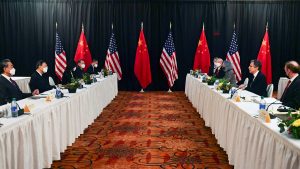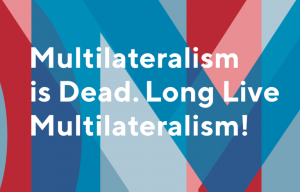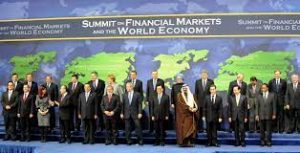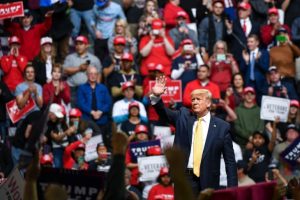 We are definitely in the midst of Global Summitry gatherings. With the BRICS Summit just recently ended, we are deep into the G20 weekend gathering in New Delhi. So much commentary has accompanied these summitry gatherings. But I caution casual observers and readers: there are way too many assessments and conclusions drawn by all those folks that unfortunately barely pay attention to Global Summitry through much of the year. You can see this in the various ‘hair on fire’ commentaries in the assessments and consequences of the actions of key players in both the BRICS and now especially with the G20. Too many declarations of the G20 demise; firm conclusions that China and Russia would block any consensus statement that sought to condemn Russia’s aggression against Ukraine; the fragmentation of global summitry with the rise of the BRICS plus and the demise of the G20 with leaders from Russia and China choosing to absent themselves from summit.
We are definitely in the midst of Global Summitry gatherings. With the BRICS Summit just recently ended, we are deep into the G20 weekend gathering in New Delhi. So much commentary has accompanied these summitry gatherings. But I caution casual observers and readers: there are way too many assessments and conclusions drawn by all those folks that unfortunately barely pay attention to Global Summitry through much of the year. You can see this in the various ‘hair on fire’ commentaries in the assessments and consequences of the actions of key players in both the BRICS and now especially with the G20. Too many declarations of the G20 demise; firm conclusions that China and Russia would block any consensus statement that sought to condemn Russia’s aggression against Ukraine; the fragmentation of global summitry with the rise of the BRICS plus and the demise of the G20 with leaders from Russia and China choosing to absent themselves from summit.
Now don’t get me wrong, the geopolitical pressures, particularly rising US-China competition and opposition and condemnation of Russia for its unprovoked aggression on Ukraine are impactful. The geopolitics has seemingly hindered the G20 in advancing global governance policies. Yet the global governance agenda and goals remain. Look at the G20 agenda as described by Damien Cave in the NYT:
The agenda in New Delhi includes climate change, economic development and debt burdens in low-income countries, as well as inflation spurred by Russia’s war in Ukraine. If members can reach consensus on any or all of these subjects, they will produce an official joint declaration at the end.
In the ‘hair on fire’ camp here is a piece by Alec Russell in the FT
The countdown to the talks was dominated by news that Xi was not going to attend. This was widely seen as a major blow to the G20, and an acceleration of the shift to a world in which a China-led bloc is facing off against a US-led one, with many countries hovering in the middle.
But the collective global governance effort has not been stymied. Indian efforts to reach consensus have proven successful. The G20, thanks to India, has released the Declaration a day early. Our good fortune. As described by the Indian Sherpa the Declaration was:
… a complete statement with 100% unanimity” that highlights India’s “great ability to bring all developing countries, all the emerging markets, China, Russia, everybody together at the same table and bring consensus.
He went on:
Urging adherence to the United Nations Charter, the New Delhi statement says: “All states must refrain from the threat or use of force to seek territorial acquisition against the territorial integrity and sovereignty or political independence of any state. The use or threat of use of nuclear weapons is inadmissible.
So there we are, a consensus statement has been issued. As often is the case, the document was not short, some 29 pages of declaration plus pages of annex. Nevertheless it ended on a ‘high note’:
81. We reiterate our commitment to the G20 as the premier forum for global economic cooperation and its continued operation in the spirit of multilateralism, on the basis of consensus, with all members participating on an equal footing in all its events including Summits. We look forward to meeting again in Brazil in 2024 and in South Africa in 2025, as well as in the United States in 2026 at the beginning of the next cycle. We welcome Saudi Arabia’s ambition to advance its turn for hosting the G20 Presidency in the next cycle. We also look forward to the Paris Olympic and Paralympic Games in 2024 as a symbol of peace, dialogue amongst nations and inclusivity, with participation of all.
But a reading of the Declaration raises again the question: what success has in fact been achieved? As Caves points out:
But how much progress has the G20 made toward its ambitions? And what can be expected from this year’s meeting in India on Saturday and Sunday? … Then what? Often, not much, when it comes to real-world results. Most of the grouping’s joint statements since it formed in 1999 have been dominated by resolutions as solid as gas fumes, with no clear consequences when nations underperform.
‘Solid as gas fumes’. Well, in many respects the Declaration is no more than a statement of collective progress – what have we collectively identified as worthy of committing to and implementing. And, I did note, in an earlier Substack Post, Not Simply the Pace of Summitry that Leaders and their official are working toward commitment but:
So, let me at least raise in this Post, what I believe is the ‘continuum of action and commitment’ available to leaders in these various Leaders’ Summits. This continuum identifies the extent to which global governance policies have been secured. We move from the aspirational, often set out in the leaders’ declarations or communiques all the way to implementation by a country. What is evident from the continuum is that these folks are governmental leaders. And, as a result no matter what the communique announces, individual leaders’ may, or may not, actually implement a collective wish set out in a declaration. This is well beyond just the aspirational.
The continuum, as I see it, is: Consultation/ Cooperation/ Coordination/ Collaboration – the 4Cs of global governance progress, as I see it. Distinguishing between these concepts can be quite difficult. And of course, beyond this is, collectively achieving the actions, proposals and policies that are set out in the communiques, or announced at the Leaders’ gatherings.
And that is paydirt. Collectively achieving the actions set out in all these Summit Declarations – implementing policy in other words – is global governance success. Such implementation lies generally at the national political level, although there are instances where international organizations do in fact implement.
Bottom line: it requires a lot more than a statement in a Leaders’ Declaration to achieve global governance progress. But a number of us are watching including my colleagues at the CWD process.
This Post was originally uploaded to my Substack – Alan’s Newsletter. Feel free to subscribe.
Image Credit: Al Jazeera

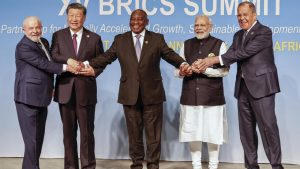
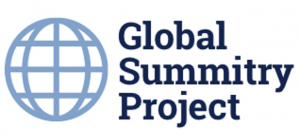

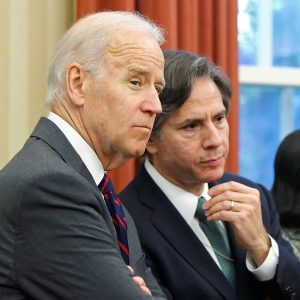
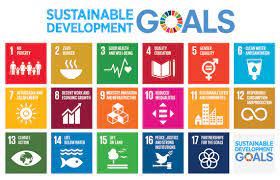 The current state of the international system. That is what I hope RisingBRICSAM can tackle in the next set of posts. While I remain the named blogger here at RisingBRICSAM, I shall not be undertaking this task alone. Nope. I have been fortunate enough these past weeks to be working with a great set of recent, or near MGA graduates from the Munk School of Global Affairs & Public Policy, University of Toronto.
The current state of the international system. That is what I hope RisingBRICSAM can tackle in the next set of posts. While I remain the named blogger here at RisingBRICSAM, I shall not be undertaking this task alone. Nope. I have been fortunate enough these past weeks to be working with a great set of recent, or near MGA graduates from the Munk School of Global Affairs & Public Policy, University of Toronto.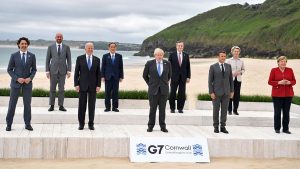 This weekend we open on a sustained set of Summits beginning with the G7 hosted by the UK in Carbis Bay. Along with various states easing restrictions and beginning to open after months of Covid lockdown, we now have the in-person opening of this summit season. The G7 will be followed by a NATO gathering, then an EU-US summit and then a sort of ‘back to the future’ classic ‘cold war’ summit, this between US President Biden and Russian President Vladimir Putin.
This weekend we open on a sustained set of Summits beginning with the G7 hosted by the UK in Carbis Bay. Along with various states easing restrictions and beginning to open after months of Covid lockdown, we now have the in-person opening of this summit season. The G7 will be followed by a NATO gathering, then an EU-US summit and then a sort of ‘back to the future’ classic ‘cold war’ summit, this between US President Biden and Russian President Vladimir Putin.